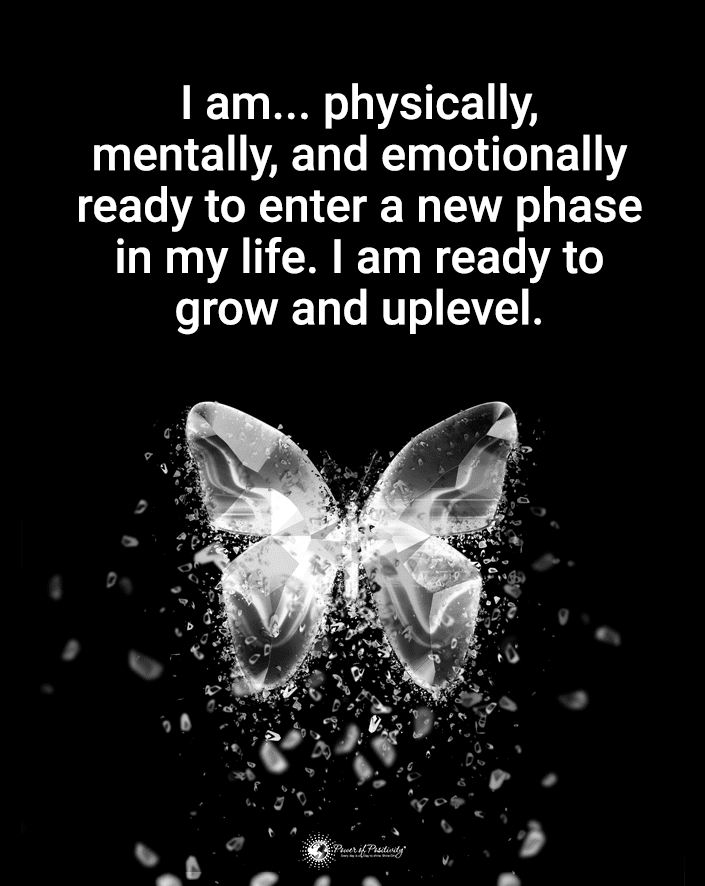Here are the common takeaways shared by survivors.
Have you ever wondered what it’s like to stand on the threshold between life and death? A near-death experience (NDE) is not just a dramatic moment in movies; instead, it is a real occurrence that can profoundly change a person’s perspective on life. But what is an NDE…and what lesson – or lessons – might one learn?
Often described as a set of sensations or visions experienced during instances of clinical death or close brushes with death, NDEs can include feelings of:
- Detachment from the body
- Feelings of levitation, serenity, security
- Warmth spreading throughout the self
- The experience of absolute dissolution
- Presence of a light.
These experiences, though intensely personal and varied, share a common thread: they bring about transformative insights and a deeper understanding of life’s true essence. Imagine, for a moment, standing at the edge of existence. What lessons might you bring back from such a profound experience?
15 Lessons People Have Learned During a Near Death Experience
Let’s look further into these lessons. Why is that important? Understanding how a brush with mortality can propel you toward a renewed and enriched life.
Life Lesson #1 – Embracing Life’s Fragility After a Near-Death Experience
One of the most powerful lessons from a near-death experience is the realization of life’s fragility. Those who have been through NDEs often speak of a newfound appreciation for the delicacy and preciousness of life. It’s a poignant reminder that every moment we have is a gift – something not to be taken for granted. This awareness can lead to a more conscious way of living, where gratitude becomes a daily practice and not just an occasional thought.
Living in the moment is not just a catchphrase. Rather, it’s a profound takeaway from understanding life’s ephemeral nature. When you embrace the present, letting go of past regrets and future anxieties, you open yourself to a life filled with more joy and fulfillment. Each day becomes an opportunity to savor experiences, build meaningful relationships, and cherish life’s simple pleasures.
Life Lesson #2 – Understanding What Truly Matters
Near-death experiences often serve as a stark reminder of what truly matters in life. In the face of mortality, material possessions, social status, and even our long-held ambitions can suddenly seem insignificant compared to the value of relationships, personal integrity, and the pursuit of genuine happiness. Many who have experienced NDEs reevaluate their priorities, focusing more on nurturing relationships, personal growth, and acts of kindness.
Family and relationships come to the forefront as pillars of a fulfilling life. The connections we build and maintain can provide a profound sense of support and love. Likewise, self-growth becomes a central theme post-NDE. Whether pursuing passions left on the back burner, engaging in continuous learning, or simply taking the time for self-reflection, growth is embraced as a goal and a journey.
Life Lesson #3 – The Power of Positive Thinking
The impact of a positive mindset, especially after a near-death situation, cannot be overstated. Optimism and positive thinking play crucial roles in recovery and reshaping one’s outlook on life. The resilience demonstrated by those who have encountered NDEs is often fueled by a positive mindset – an affirmation of life and its possibilities even in the face of adversity.
Cultivating a positive mindset is like tending a garden; it requires regular care and attention. Here are a few tips to foster positivity in your daily life:
- Practice Gratitude: Start or end each day by reflecting on what things you are thankful for. Gratitude shifts focus from what you might lack to the abundance already in your life.
- Surround Yourself with Positivity: Choose to spend time with people who uplift and encourage you. Similarly, engage with media and content that boosts your morale.
- Mindful Self-Talk: Be aware of your inner dialogue. Replace negative thoughts with affirming and constructive ones.
- Embrace Challenges as Opportunities: View obstacles as chances for growth rather than insurmountable problems.
- Savor Joyful Moments: Take time to enjoy and appreciate moments of happiness, however small they may seem.
Remember, a positive mindset isn’t about ignoring life’s challenges. It’s about embracing them with hope and believing that something good is always on the horizon.
Life Lesson #4 – Overcoming Fear of Death After a Near-Death Experience
The fear of death is a universal human experience, often shrouded in mystery and unease. However, those who have encountered near-death experiences frequently report a significant decrease in their fear of death. This remarkable shift comes from the insights gained during an NDE, where individuals often experience a sense of peace or encounter visions that suggest an existence beyond physical life.
This newfound perspective can inspire you to embrace life’s journey with more courage and less fear. Understanding that death may not be the end, but a transition can transform the way you live. It encourages living authentically, making bold choices, and cherishing every moment. Let this understanding remind you to make the most of your time without the paralyzing fear of its end.
Life Lesson #5 – Renewed Appreciation for Health
Near-death experiences often bring a renewed appreciation for health – both as a gift and a responsibility. After facing the fragility of life, the importance of maintaining good physical health becomes more evident. A healthy body can enhance the quality of life, increase longevity, and enable you to engage more fully in various activities.
To nurture your physical health, consider these tips:
- Balanced Nutrition: Eat a diet rich in fruits, vegetables, whole grains, and lean proteins. Proper nutrition is fundamental to good health.
- Regular Exercise: Incorporate physical activity into your day. It can be simple as daily walks, yoga, or structured workouts.
- Adequate Rest: Ensure you get sufficient sleep. Sleeping is crucial for physical and mental recovery.
- Routine Check-ups: Regular health screenings can help catch potential issues early.
- Mindful Habits: Be conscious of smoking, excessive drinking, or prolonged inactivity.
Life Lesson #6 – Deepening Spiritual Connections
Many individuals who experience NDEs report deepening their spiritual beliefs or a newfound interest in spiritual matters. These experiences can catalyze a journey into exploring personal spirituality, often leading to a greater sense of peace, purpose, and connection to something greater than oneself.
Exploring personal spirituality can take many forms – it might involve traditional religious practices, meditation, nature walks, or simply moments of quiet reflection. The key is to find what resonates with you, providing a sense of comfort and connection. Permit yourself the freedom to explore and embrace this aspect of your being, understanding that spirituality can be a wellspring of strength and guidance.
Life Lesson #7 – The Importance of Mental Wellness
Near-death experiences can also bring about a deeper appreciation for mental wellness. Survivors often gain insights into the importance of mental and emotional health, recognizing that it’s as crucial as physical well-being. That awareness can lead to a more proactive approach to mental health, understanding that nurturing the mind is vital for happiness and life satisfaction.
To prioritize mental wellness, consider these practices:
- Regular Self-Reflection: Take time to understand your thoughts and emotions.
- Seek Professional Help: Therapy or counseling may be invaluable in addressing mental health issues.
- Mindfulness and Meditation: These practices can reduce stress and improve emotional well-being.
- Building Strong Relationships: Healthy relationships can provide emotional support and a sense of belonging.
- Pursuing Hobbies and Interests: Engage in activities that bring joy and relaxation.
Life Lesson #8 – Learning to Let Go Because of a Near-Death Experience
One of the transformative lessons from NDEs is learning to let go of grudges, resentments, and negative emotions. Holding onto these feelings can lead to a life filled with bitterness and unhappiness. Instead, embracing forgiveness and letting go of past hurts can lead to emotional healing and a more peaceful existence.
Here are some tips for fostering emotional healing and forgiveness:
- Acknowledging Feelings: Recognize and accept your emotions rather than suppressing them.
- Expressing Emotions Constructively: Find healthy ways to express your feelings, such as through writing, art, or conversation.
- Practicing Forgiveness: Remember that forgiveness is more about your peace than condoning others’ actions.
- Seeking Closure: Seek or offer closure to unresolved issues.
- Focusing on the Present: Redirect your energy and focus to the present, building a positive future.
These lessons can lead to a richer – and more fulfilling – life. One marked by deeper connections and improved health. It also gives you a serene acceptance of life’s ultimate journey.
Life Lesson #9 – Finding Purpose and Passion
One of the profound lessons gleaned from near-death experiences is the impetus to find or rediscover one’s purpose and passion in life. These transformative events often serve as wake-up calls, prompting individuals to reassess their life’s direction and align it more closely with their true desires and values. This alignment is not just about ambition or achievement; it’s about finding meaning and joy in everyday activities.
To discover or reignite your life’s purpose, ask yourself what makes you happy and fulfilled. Reflect on moments when you felt vigorous and passionate. These are clues to what you genuinely love. Aligning your actions with your values means making choices that are true to your core beliefs and authentic self. It’s about living a life reflecting who you are and what you stand for, creating a profound sense of fulfillment and purpose.
Life Lesson #10 – Building Resilience
Resilience, the ability to bounce back from most adversity, is a critical life skill that can be strengthened over time. For those who have experienced near-death situations, resilience becomes an indispensable tool. It means not just surviving challenges but also learning and growing from them.
Developing resilience can involve several strategies:
- Maintain a Positive Outlook: Focus on finding the silver lining in difficult situations.
- Establish Goals: Set achievable, realistic goals to foster a sense of purpose and direction.
- Nurture Relationships: Strong social support can provide comfort and perspective in challenging times.
- Embrace Change: View change as an inevitable and manageable part of life.
- Take Care of Yourself: Prioritize self-care, including physical health, mental well-being, and relaxation.
Life Lesson #11 – The Art of Mindfulness
Mindfulness, a state of active, open attention to the present moment, is often a key takeaway from near-death experiences. The heightened awareness of the present can lead to a deeper appreciation of life, improved mental health, and greater inner peace.
Practical exercises to cultivate mindfulness include:
- Mindful Breathing: Focus solely on your breath, observing each inhale and exhale to anchor yourself in the present.
- Sensory Observation: Pay attention to your senses – what you see, hear, smell, taste, and touch, without judgment.
- Mindful Eating: Eat slowly and attentively, savoring each bite and noticing the flavors and textures.
- Walking Meditation: Walk slowly, noticing each step and the sensations in your body.
- Daily Reflections: Spend a few minutes each day reflecting on your experiences and feelings.
Life Lesson #12 – Valuing Community and Support
The value of community and social support is often highlighted in the aftermath of a near-death experience. Human connection can provide a sense of belonging, love, and support, crucial for mental and emotional well-being. Strong relationships can offer comfort during difficult times and joy in celebratory moments.
To build and maintain strong relationships:
- Communicate Openly: Share your thoughts and feelings honestly and listen actively.
- Show Appreciation: Express your heartfelt gratitude and appreciation to those in your life.
- Offer Support: Be there for others in their times of need.
- Participate in Community Activities: Engage in group activities that align with your interests.
- Nurture Relationships: Invest time and effort to maintain your relationships.
Life Lesson #13 – Embracing Change and Growth After Surviving a Near-Death Experience
Change, though often challenging, plays a vital role in personal growth. Experiences like near-death events can dramatically alter perspectives, underscoring the importance of adaptability and openness to change. Embracing change rather than resisting it can lead to personal evolution and discovering new possibilities.
Adapting to change involves:
- Staying Open-Minded: Be willing to consider new ideas and perspectives.
- Learning from Experiences: View each experience, good or bad, as a learning opportunity.
- Being Flexible: Adapt your goals and methods as situations change.
- Seeking New Opportunities: Use change as a catalyst to explore new avenues in life.
- Maintaining a Growth Mindset: Believe in your ability to grow and improve through challenges.
Incorporating these lessons into your life can lead to a richer, more fulfilling existence. They encourage not just surviving but thriving – embracing every moment, every challenge, and every opportunity for growth that life offers.
Life Lesson #14 – Spreading Kindness and Empathy
A near-death experience often brings a profound realization of the importance of kindness and empathy in our lives. Those who have faced the brink of death return with a heightened sense of compassion for others. They understand that every person is battling their challenges, and a small act of kindness can make a significant difference.
Spreading kindness and practicing empathy can transform individual lives and ripple out to create a more compassionate world. Here are some ways to incorporate these values into your daily life:
- Listen Actively: Sometimes, the kindest thing you can do is listen to someone without judgment.
- Help Without Expecting Anything in Return: Offer help to make someone else’s life easier or happier.
- Show Appreciation: Express gratitude to people for their actions, big or small.
- Practice Patience: Understand that everyone has struggles and be patient with others.
- Share Empathy: Try to see situations from others’ perspectives, understanding their feelings and experiences.
Life Lesson #15 – Embracing the Mystery of Life
As we reflect on the profound lessons learned from near-death experiences, it’s important to add one more vital insight. The mystery of life. NDEs often leave individuals with a sense of wonder about the vastness of our existence. This encounter with the unknown can inspire a healthy curiosity and acceptance of life’s mysteries.
Embracing life’s mysteries involves acknowledging that nothing can be understood or explained. It encourages a humble appreciation for the complexities and wonders of the universe and our place within it.
Here are some ways to cultivate this mindset:
- Stay Curious: Always be open to learning and exploring new ideas and experiences.
- Find Joy in Wonder: Look at the world’s beauty and intricacies.
- Accept Uncertainty: Uncertainty is a natural part of life and can lead to growth and discovery.
- Reflect on the Bigger Picture: Regularly take a step back to contemplate the broader aspects of life and existence.
- Cultivate Awe: Seek out experiences that leave you in awe – be it through nature, art, science, or spirituality.
By embracing the mystery of life, you open yourself to a journey filled with discovery, learning, and a deeper connection to the world. This perspective can add a rich layer of meaning to your daily experiences, making life not just a journey to be traversed but an adventure to be cherished.
Final Thoughts on the Lessons People Have Learned From a Near-Death Experience
Reflecting on these lessons from near-death experiences, it’s clear that they offer more than just insights into the afterlife; they provide a blueprint for a more fulfilling, compassionate, and mindful way of living. These experiences remind us of the importance of appreciating every moment, nurturing our physical and mental health, and valuing our connections with others.
As you go about your life, remember that you don’t need a near-death experience to start living with more purpose, kindness, and gratitude. Take a moment to reflect on your life. Are you taking care of your mental and physical wellness? Do your actions align with your deepest values? Are you nurturing relationships that are important to you?
Let these lessons gently remind you to cherish your health, live mindfully, embrace change, and spread kindness wherever you go. Your life is a precious gift – make it count.


















